
The Canadian art scene, steeped in rich history and culture, offers a variety of captivating artworks. Still, a puzzling question remains: Why do certain Canadian artists sell for thousands to millions of dollars while others are available at garage sale prices?
Here are some reasons that shed light on this interesting phenomenon in the Canadian art market.
1. Canadian Historical Importance:
Artists like Tom Thomson, Maurice Cullen and members of the Group of Seven have significantly shaped the Canadian art landscape. Their unique styles and depictions of the Canadian wilderness and Canadian story have cemented their place in history. As their legacies grow, so does the value of their works.
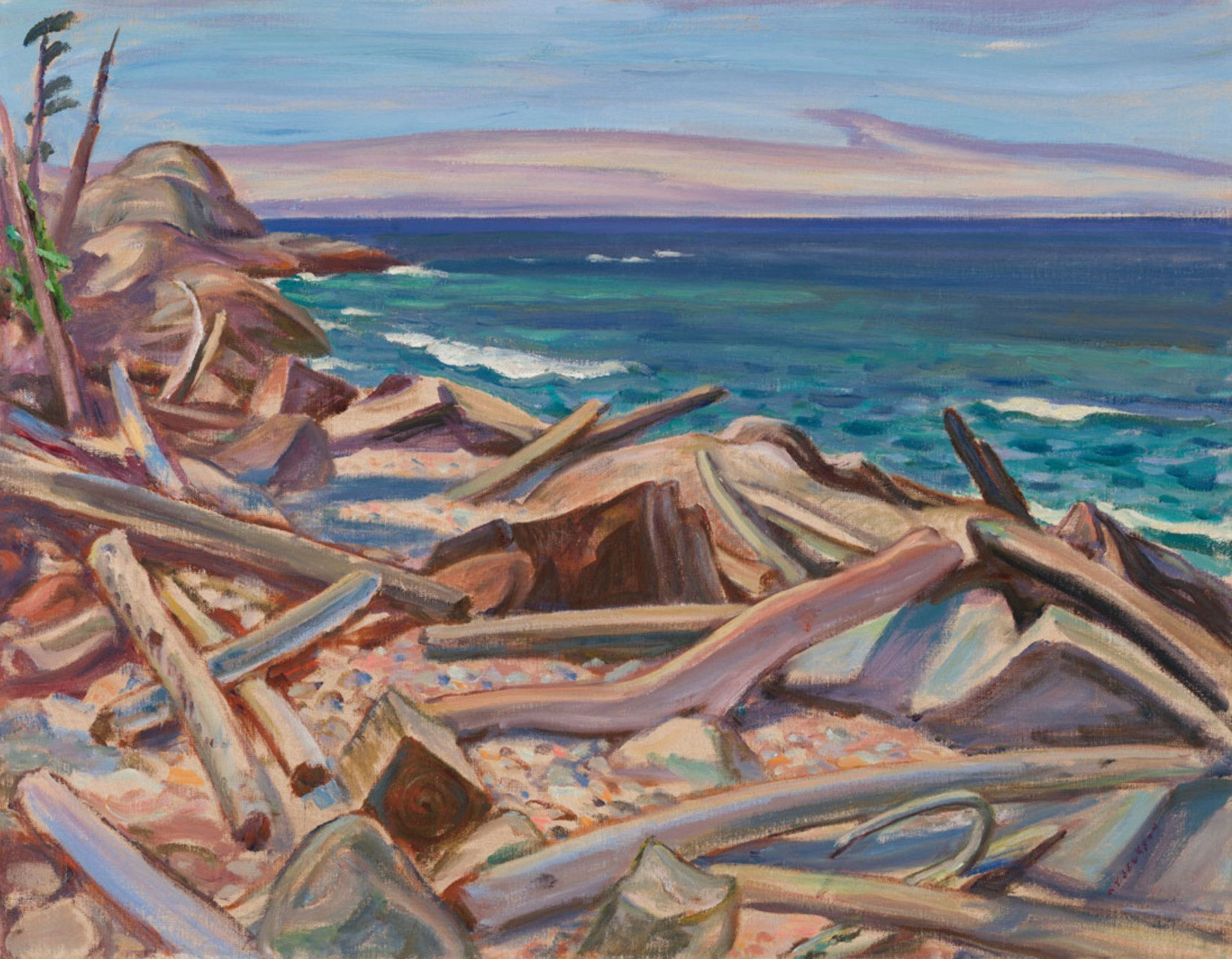
A.Y. Jackson; Driftwood, 1954
2. Rarity and Demand:
Basic supply versus demand principles apply even in the art world. If a Canadian artist has limited works available or if many pieces are housed in places like the National Gallery of Canada, demand and prices soar. Meanwhile, artists with hundreds of works available cannot hope to experience the same level of demand or valuation.
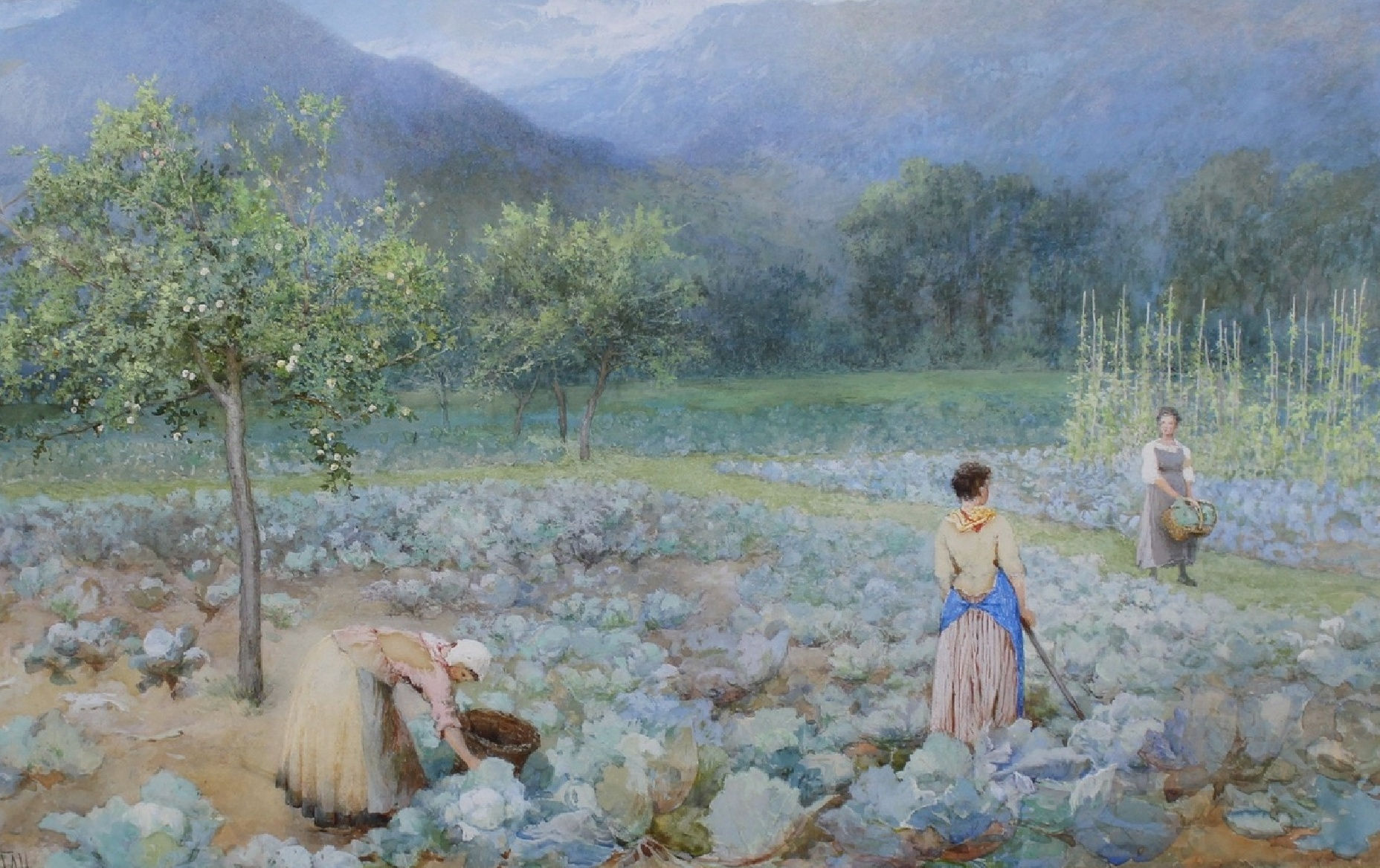
Frances Anne Hopkins; Cabbage Garden at Schinznach, 1887
3. Breaking the Mold:
Innovation is prized. Canadian artists who bring fresh perspectives or techniques often gain more attention. People want to be able to recognize an artist's work from a single glance. Their art style shapes the world they create and invites the viewer to experience that with them. Unique approaches can set artists apart, leading to greater demand and higher prices.

Kazuo Nakamura; Landscape, 1974
4. Backing and Advocacy:
Having the support of influential Canadian galleries, museums, crtics and collectors makes a big difference. They have the means to spotlight an artist, ensuring their work gets seen in the right places by the right people, from the Art Gallery of Ontario to international exhibitions.
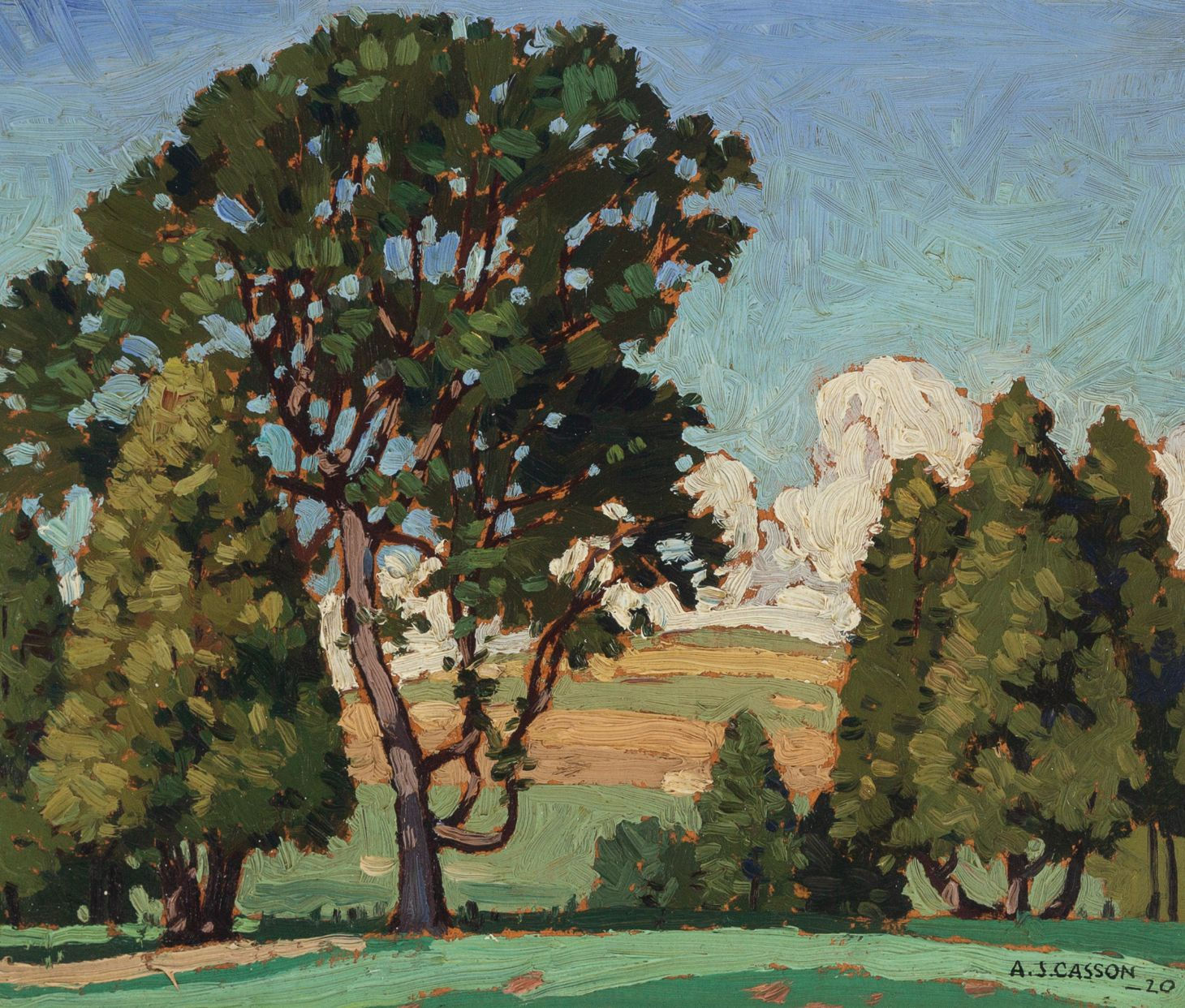
A.J. Casson; In the Don Valley, 1920
5. Making Headlines:
If a Canadian artist captures media attention—for groundbreaking work, unique life stories, or even controversy—it can boost interest and sales. Becoming a Canadian household name can greatly elevate an artist's standing in the art market.

Maud Lewis; Horse Drawn Sleighs and Covered Bridge
6. Betting on Art:
Some art collectors invest, hoping to buy pieces that will significantly appreciate over time. Their participation can have a huge impact on the Canadian art market. If they speculate that an artist is on the rise or has been overlooked, their involvement can substantially increase the value of the artist's work. This speculation can cause prices for certain Canadian artists to skyrocket, while others remain unnoticed.
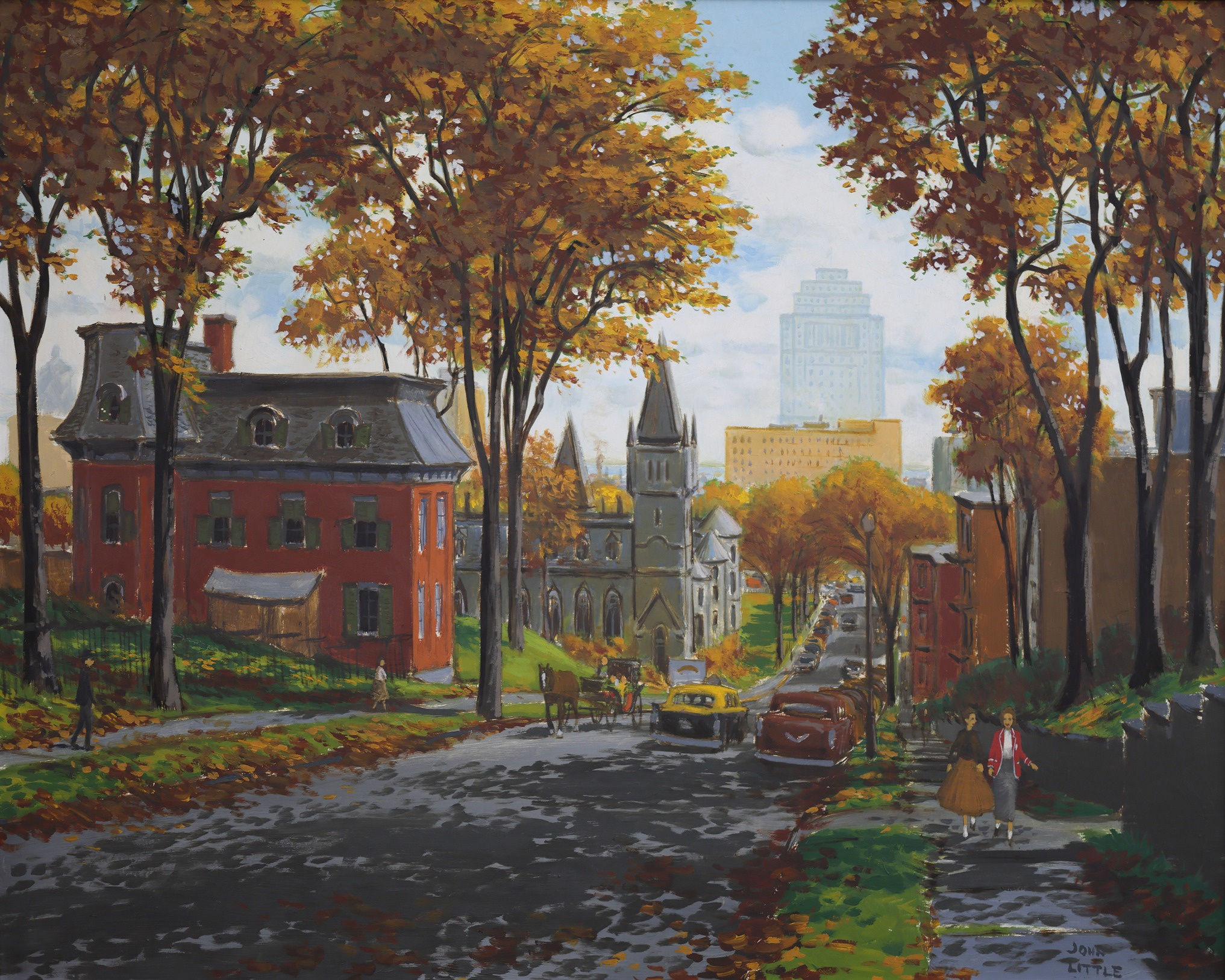
John Little; McTavish Street, 1956
7. Tapping into the Canadian Soul:
Art that represents Canadian values, showcases national pastimes such as hockey, depicts iconic winter landscapes, and delves into pressing societal topics often garners heightened attention. Art pieces that display these aspects of Canadian identity are praised more highly than other works, and as a result their price reflects that.
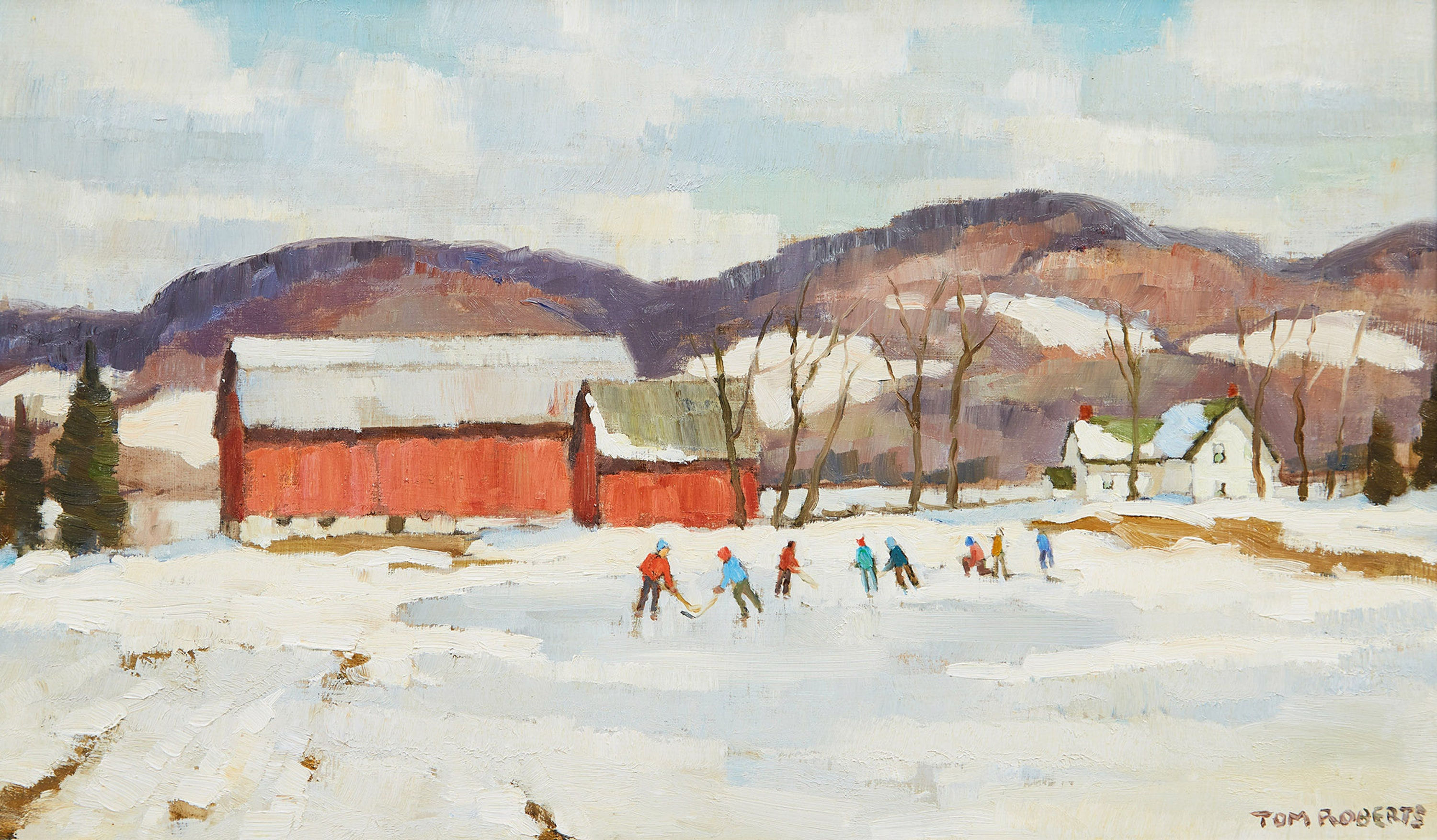
Tom Roberts; Late Winter; Ottawa Valley, c 1980
8. Emotional Resonance:
At its heart, art is about connection. A Canadian piece that is sentimental might receive a higher price, even if the market doesn't value it as highly. Conversely, artists whose works don't connect to their viewers might find pricing challenges.

Georgia Jarvis; A Star Is Born, c 1985
9. Recognized Excellence:
Awards or positive reviews from prominent Canadian art critics can provide an artist with enhanced credibility, pushing up the value of their work.
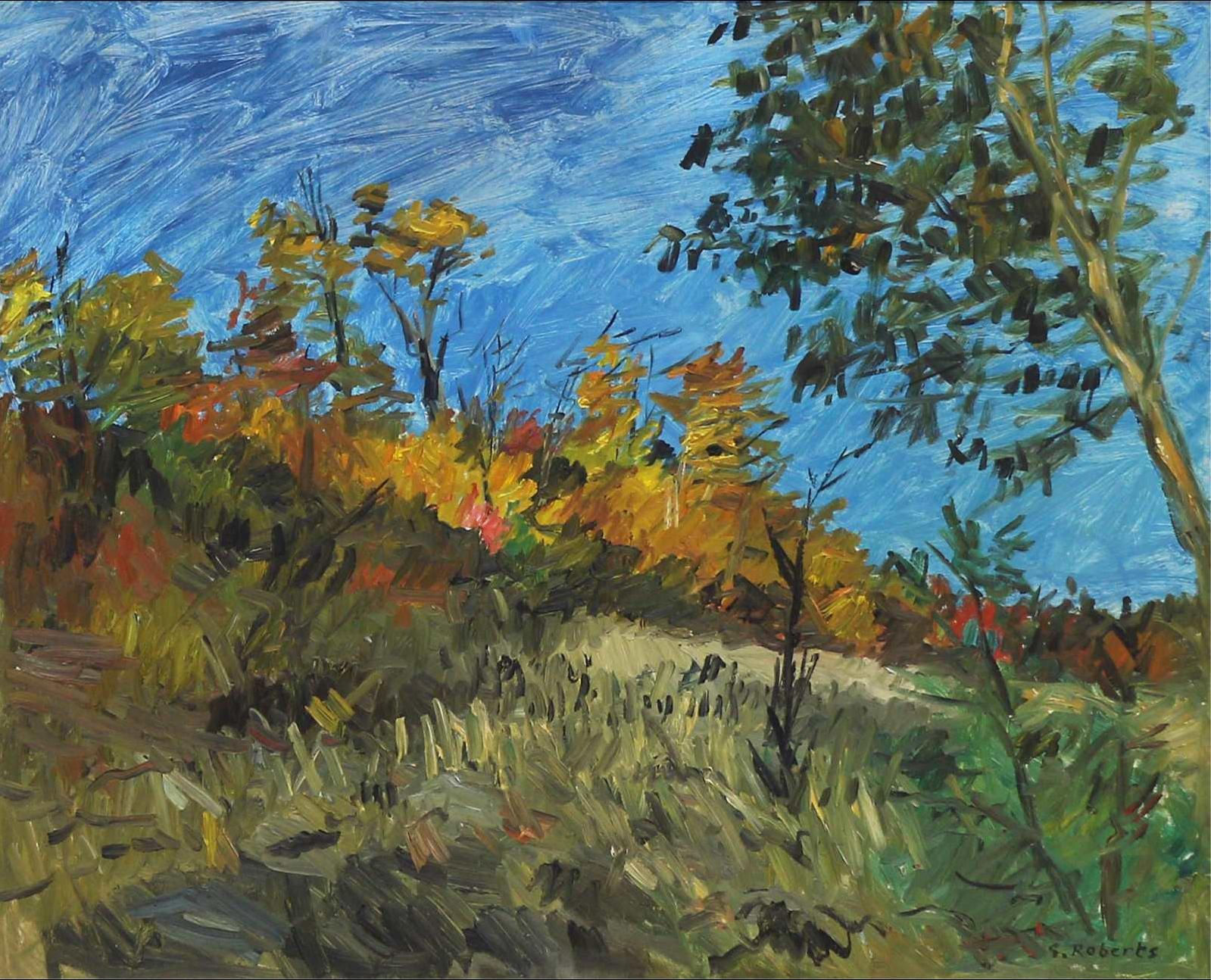
Goodridge Roberts; Autumn Landscape, c 1960
10. Books:
A high quality and well publicized book can raise an artist from being an obscure figure to one that is highly prized.

Peter Clapham Sheppard; Toronto Harbour
In conclusion, understanding the value of Canadian art means considering a mix of history, market forces, and human connection. Wise purchases make art collecting a very enjoyable pursuit.








